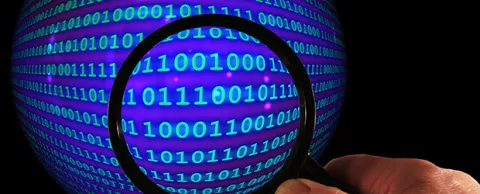
In today’s data-driven society, is there such a thing as too much data? After all, if data can help you make better decisions, shouldn’t you want as much as possible?
But experts say we have a tendency to confuse the quantity of data with the quality of data. Therefore, any analytics strategy you develop needs to focus on collecting and using the right information — as opposed to simply becoming a data hoarder.
Paralysis by data
Too much data stresses us out. A British study finds that more than a third of people find the information overload makes them feel anxious. Two-thirds say that trying to keep track of great volumes of data is one of the major stresses in their lives.
The problem is this: When we think that more data is out there, we tend to feel compelled to seek it out. And since the amount of data available is unlimited, we are fixated on collecting everything when that’s truly an impossible task.
More data can lead to bad decisions
While data should help us make objective decisions, another study found that’s not necessarily the case. We can be much more influenced by our ability to collect a piece of information than by what that information actually is.
In an experiment, two groups of people were asked to evaluate a loan candidate. The first group was told the candidate defaulted on payments for a loan worth $5,000. The second group was told the candidate defaulted on a loan worth between $5,000 and $25,000. That group naturally asked for more information and they were eventually given the same $5,000 figure as the first group.
While most people in the first group rejected the loan application outright, most people in the second group approved it. Their view was clouded by their success in finally collecting the missing puzzle piece; they didn’t consider whether having the exact number should have even mattered.
So what can you do?
One data advocate says the first step is understanding that not all data are equal. Some data are better than others. Also, some data are truly bad. Any strategy must begin with an evaluation of the quality of the data and a consideration of whether or not the numbers are telling you what you think they are. Good data are current, relevant and easily accessible.
This evaluation may help you break the natural tendency to just collect every number you can. One study found government employees spend nearly half their time collecting data, but only a third of their time getting any meaningful insights from it.
You may likely find that one type of information is collected in several different ways by several different departments. Concentrate on the highest-quality data; everything else is just noise.
You will probably find that some of the data doesn’t even need to be collected. Discarding it will help you not only make better decisions, but also more efficient use of your limited resources.
More stories …
How (and why!) Boston uses Open Data to show what's going wrong
Don’t make your citizens hunt for info. Chicago is giving its (and yours) a map
Can open data take some of the guesswork out of farming? Definitely



